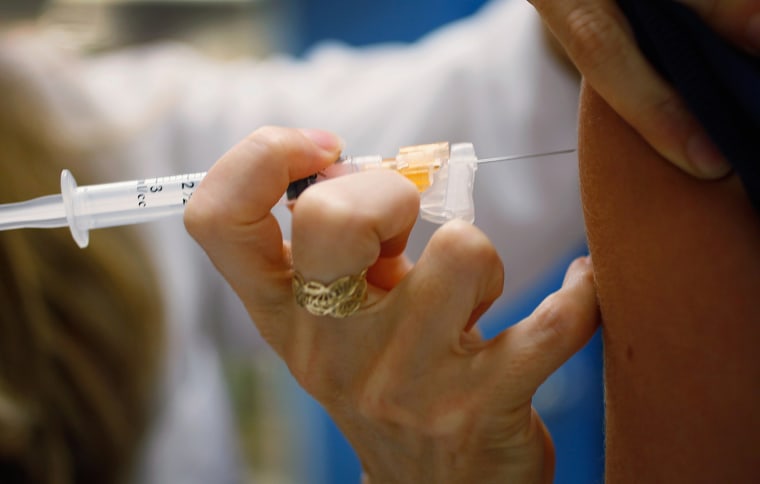At first blush, the recent progress on the HPV vaccine wouldn't seem especially political. In fact, ideally, it shouldn't be political in the slightest.
But the significance of developments like these extend beyond public-health policy. USA Today reported on the latest encouraging data.
Thanks to a vaccination program that began a decade ago, fewer U.S. women are entering adulthood infected with a sexually transmitted virus that can cause cancer, new research shows. The study, published Monday in Pediatrics, is the first to show falling levels of dangerous strains of the human papillomavirus (HPV) among women in their early 20s. Researchers believe those women are the leading edge of a generation that should see fewer cases of cervical, vaginal, anal and throat cancers in the decades ahead.
And that's unquestionably excellent news. We're not just talking about modest improvement, either -- the New York Times' report added that the vaccine "has already reduced the virus's prevalence in teenage girls by almost two-thirds."
Dr. Lauri Markowitz, a medical epidemiologist at the National Center for Immunizations and Respiratory Diseases, a division of the CDC, the lead researcher in this study, told reporters that the successes are in line with expectations, though she added, "[W]e would see greater impact with greater vaccine coverage."
And that is where the health story ends and the political story begins.
As long-time readers may recall, there's been an FDA-approved vaccine available for several years that immunizes against HPV infection, but far-right elements in the Republican Party have brought the vaccine into the culture war -- with many conservatives arguing that the vaccine encourages minors to have sex.
The politics surrounding the HPV vaccine took a turn towards the ridiculous in 2011, when then-Rep. Michele Bachmann (R-Minn.), at the time an almost-credible presidential candidate, went after then-Texas Gov. Rick Perry (R) for giving the vaccine to girls in his state. The right-wing lawmaker claimed that the HPV vaccine can lead to mental retardation -- a claim with no foundation in reality -- and Perry ended up apologizing for one of his only progressive acts in office.
It became a hot-button issue again in 2012 when South Carolina Gov. Nikki Haley (R), a likely vice presidential contender this year, vetoed an HPV bill approved by state lawmaker in her own party, despite pleas from state health officials. (At the time, South Carolina ranked ninth nationwide for cervical cancer deaths. Haley killed the bipartisan measure anyway.)
We know, by the way, that the right's concerns are wrong. There's ample evidence that the HPV vaccine does not change sexual behavior among minors.
But the culture war surrounding this literal life-saver continues. The sooner the political controversy ends, the better the public-health benefits will be.
Update: There's every reason to believe an issue like this could be relevant in a 2016 context, as well. In Nevada, for example, Rep. Joe Heck (R) is a leading U.S. Senate candidate, who's on record criticizing the HPV vaccine, comparing it to coddling "smokers who contract lung cancer."
